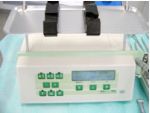ORAL SURGERY
Tooth
Extraction
Tooth
extraction is one of the most common dental procedures. Healing
of the resulting extraction socket normally occurs uneventfully.
However, even with completely normal healing, there is often some
reabsorption or melting away of surrounding bone. Resulting in less
height and width than were present prior to tooth extraction. In
addition, as bone resorbs, overlying gum tissue also tends to lose
both volume and its normal anatomic form. These changes can occur
anywhere in the mouth but the most severe loss of bone and gum tissue
tends to occur following the removal of incisor teeth located in
the front of the mouth.
|
The
Importance of Bone Preservation
Loss
of bone and gum tissue following tooth extraction often results
in both functional and cosmetic defects: - An unsightly collapsed
appearance, especially in the front of the mouth where proper
maintenance of tissue health is critical to normal aesthetics.
|
 |
-
It often compromises the dentist's ability to adequately replace
the missing tooth or teeth with either conventional removable or
fixed bridgework or with a dental implant supported restoration.
Sometimes the loss of bone is so severe that additional surgical
procedures are required prior to replacing missing teeth.
Bone Grafting
A bone graft is a surgical procedure that replaces missing bone
with material from the patient's own body or an artificial, synthetic,
or natural substitute is called a bone graft. The graft not only
replaces missing bone, but also helps your body to regrow its own
lost bone. This new bone growth strengthens the grafted area by
forming a bridge between your existing bone and the graft material.
Over time your own newly formed bone will replace much of the grafted
material.
The
need for Bone Grafts
They are needed when a part of your body is missing bone. This
missing portion of bone is frequently called a "bony defect".
Examples of jawbone defects are: defects which occur following tooth
extraction; generalized decrease in quantity of jawbone from trauma
or long-term tooth loss; defects surrounding "old style"
dental care; defects resulting from cysts or tumour surgery.
Guided Bone Regeneration (GBR)
A procedure in which a membrane is placed over the bone defect
site. This membrane encourages new bone to grow and also prevents
the in-growth of fibrous scar tissue into the grafted site.
GBR
success rate
Recent advances in technology have dramatically increased the
success of these procedures, leading to bone formation and resolution
of the defect. grafted site. The success rate of bone grafts used
to provide support or anchorage for osseointegrated titanium implants
is generally quite similar to implants placed in naturally available
bone.
Types
of Bone
There are many different types of bone grafts. Some grafts are
taken from different parts of the patient's own body (i.e. from
the hip bone or chin). Other grafts come from deceased human organ
donors, from synthetic materials, and from highly purified bovine
material.
Likewise,
there are different types of GBR membranes. Some are made from synthetic
polymers and must be removed during the second surgery several weeks
or months later. Other membranes are made of restorable collagen
materials.
TYPES
OF BONE GRAFT PROCEDURES
Sinus
Lift
This procedure involves elevating the sinus membrane and placing
the bone graft onto the sinus floor, allowing implants to be placed
in the back of the upper jaw.
Ridge-augmentation
In severe cases the ridge has been reabsorbed and a bone graft
is placed to increase the ridge height and/or width.
Nerve-repositioning
The inferior alveolar nerve, which gives feeling to the lower
lip and chin, may need to be moved in the order to make room for
placement of dental implants to the lower jaw.
These
procedures may be performed separately or together, depending upon
the individual's condition.
|



